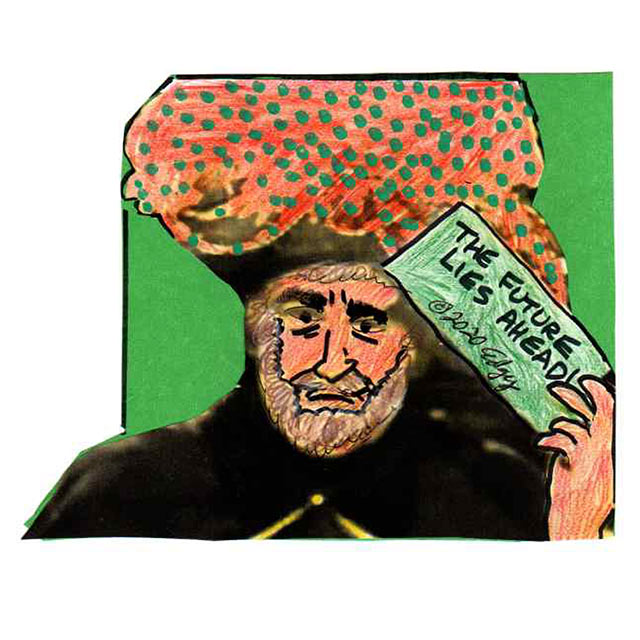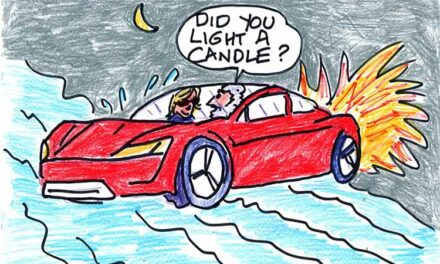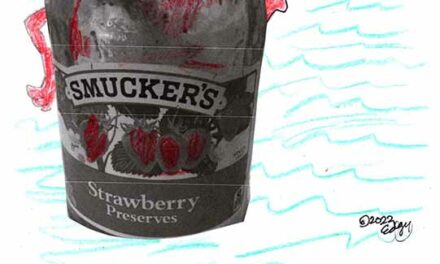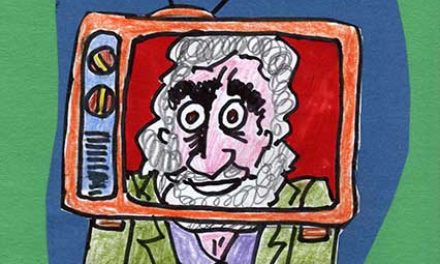“The Future of Everything” Is Warning Us About Warnings
We now take a few moments to dissect a fog
By Ed Goldman
The Wall Street Journal gob smacked me the other week by running a special supplement called “The Future of Everything.” The dominant theme was what’s next for computer hacking.
I was gob smacked because whenever I read the WSJ, which comes out every day but Sunday, I half-expect one of its regular columnists to write an essay titled ”Wendell Willkie: Would He Have Beat FDR in a Rematch if He Didn’t Die a Year Before FDR Did?”
Yes, I’m suggesting that the venerable WSJ, which does terrific reporting in its news pages, is a tad mired in what I’ll call the WASPast—the era(s) when Caucasian businessmen made (and often broke) all the rules about our country’s priorities and sensibilities. It can be argued, and with some success, that the less things change, the more they stay the same.
The editorial pages of the New York Times, to which I also subscribe, have been the yin to the Journal’s daily yang—or, more correctly, each has been the chain for the other to yank.
To me, “The Future of Everything” is, in its own way, as arrogant a proposition as saying, ”There is no God.” At least with the former you can begin a sentence with, “Evidence suggests that in the future, etc.” You can’t do that as neatly with the latter simply because there’s no hard evidence to confirm that God doesn’t exist, just as there’s none to objectively assert that God does. It’s all pretty subjective, n’est-ce pas? (Okay. I agree I shouldn’t launch into these discussions while reading French existentialists while Edith Piaf warbles “La Vie En Rose” on my Victrola.)
While I find the title “The Future of Everything” obnoxious, I’ll have to admit I also envy anyone’s ability to utter it with certainty or even a straight face.
For example, at the moment I’m debating with myself about five different entrees I can prepare tonight and I feel pretty sure they’re all going to lose and at the last minute I’ll opt for Chinese takeout. My not-very-subtle point is that if I’m incapable of looking as far ahead as dinner, how can I possibly accept someone’s predictions of everything else that’s about to happen?
Even the predictors are hedging their bets. In one of the WSJ’s main articles on the future of cyber disinformation/hacking campaigns—in which an entity or individual deliberately spreads harmful lies about a competitor or political issue—the most the author can do is sound a warning, which is journalism’s version of a bureaucrat’s stern memo (the most-used one in broadcast news is “Only time will tell”).
He can predict the past!
To wit: “Companies are going to need to take aggressive steps, such as monitoring social media for disinformation and deepfakes, so that they are aware of potential problems before issues go viral. While research is in its early days, they call defenses against these attacks ‘cognitive security’ or ‘misinfosec.’” And here I thought that Miss Infosec was the name of a very brief beauty contest sponsored by Snapchat.
One thing the special section does well is provide a handy list of “Hacking’s Next Targets.” These include smart-phones, cars, cities, trains, airplanes, 5G networks, schools, hospitals and the energy grid. Notably absent are lions and tigers and bears (oh, my!).
According to a story on National Public Radio, “General Tso’s chicken is named for Tso Tsung-t’ang (now usually transliterated as Zuo Zongtang), a formidable nineteenth-century general who is said to have enjoyed eating it.” Really? Who said that? Frankly, I suspect the story of being a deepfake. And so does my dinner date, Miss Infosec.
Ed Goldman's column appears almost every Monday, Wednesday and Friday. A former daily columnist for the Sacramento Business Journal, as well as monthly columnist for Sacramento Magazine and Comstock’s Business Magazine, he’s the author of five books, two plays and one musical (so far).













